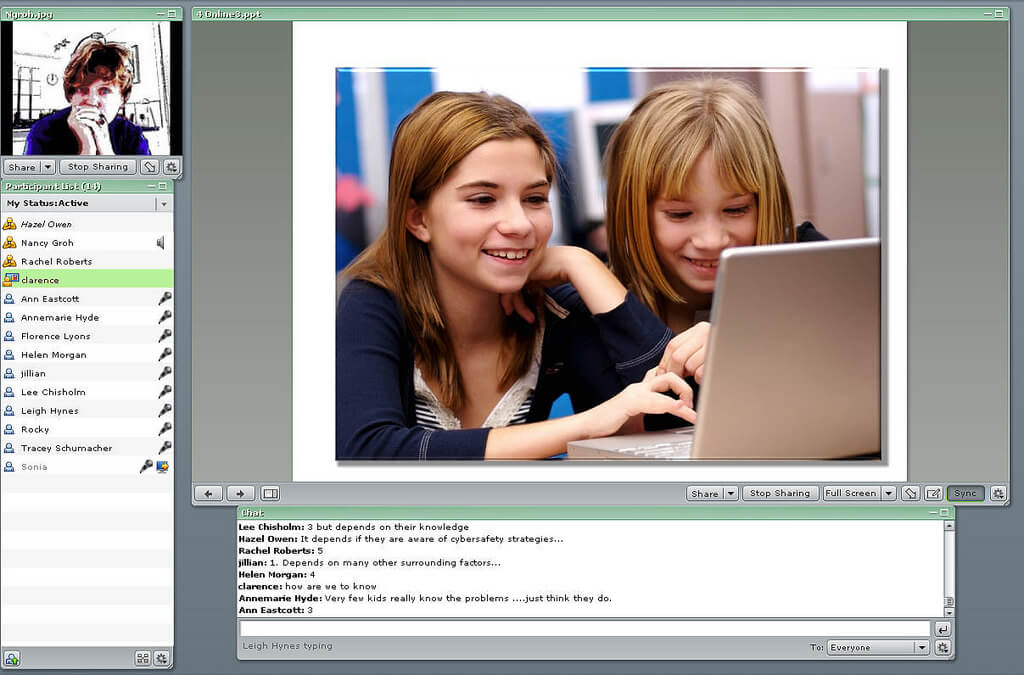Before finishing my morning coffee, two news stories caught my eye as they provide more evidence that digital citizenship education is essential for all, especially the young. The first is a tragic story of a young girl who was targeted on social media, first by cyberbullies and next her vulnerability was exploited, also online, by her alleged killer. The second story is about a celebrity being sued for an offensive meme he shared online of an eight year-old-girl. What do these stories have in common? That what we do online has consequences. And everyone, from the young and innocent to the ‘should’ve known better’ could use a lesson or two in the appropriate use of technology.
Before finishing my morning coffee, two news stories caught my eye as they provide more evidence that digital citizenship education is essential for all, especially the young. The first is a tragic story of a young girl who was targeted on social media, first by cyberbullies and next her vulnerability was exploited, also online, by her alleged killer. The second story is about a celebrity being sued for an offensive meme he shared online of an eight year-old-girl. What do these stories have in common? That what we do online has consequences. And everyone, from the young and innocent to the ‘should’ve known better’ could use a lesson or two in the appropriate use of technology.

Digital Citizenship is a term used by many in the tech and education industries but needs to become more widely understood by the general public. Digital Citizenship was defined in 2015 at the first ever DigCit Summit as the safe, savvy and ethical use of technology. Some examples below:
- To use technology safely, a person needs to understand how to secure their devices with strong passwords; use and manage privacy settings effectively; employ safety settings; and connect cautiously to free and open Wi-Fi.
- To be savvy online, a person needs to understand the public nature of social media, to connect to strangers with caution, to be skeptical of information that you can’t corroborate, to be mindful, purposeful and restrained in what you share.
- Ethical use of technology requires a user to be honest in dealings online, to not plagiarize or pirate content, to follow proper etiquette in using technology in public, to be kind online, to ask permission before sharing about others, and on and on.
I feel strongly that media and digital literacy are skills that all of us need in order to fully participate in today’s economy and culture. Teaching these skills should be mandatory in every school system. We may not be able to protect every child from unwanted attention online, but we can educate them on safe use of social media and alert them to the warning signs of dangerous connections. Clearly, Val Chmerkovsky could have found a less hurtful way to initiate a discussion about childhood obesity. Did he not think that the photo was of a real live human child? We need to remember that there are real people on the receiving end of our screens, not personas. Some are sweet and innocent. And others are not.
It’s important to remember that it is not the technology that gets us in trouble, but how we use it. So let’s invest in learning to become smart users.
If you are in the DC Metro area and would like learn more about engaging safely online come to one of my presentations or contact me to set one up for your school or group.
Digital Citizenship is a term used by many in the tech and education industries but needs to become more widely understood by the general public. Digital Citizenship was defined in 2015 at the first ever DigCit Summit as the safe, savvy and ethical use of technology. Some examples below:
- To use technology safely, a person needs to understand how to secure their devices with strong passwords; use and manage privacy settings effectively; employ safety settings; and connect cautiously to free and open Wi-Fi.
- To be savvy online, a person needs to understand the public nature of social media, to connect to strangers with caution, to be skeptical of information that you can’t corroborate, to be mindful, purposeful and restrained in what you share.
- Ethical use of technology requires a user to be honest in dealings online, to not plagiarize or pirate content, to follow proper etiquette in using technology in public, to be kind online, to ask permission before sharing about others, and on and on.
I feel strongly that media and digital literacy are skills that all of us need in order to fully participate in today’s economy and culture. Teaching these skills should be mandatory in every school system. We may not be able to protect every child from unwanted attention online, but we can educate them on safe use of social media and alert them to the warning signs of dangerous connections. Clearly, Val Chmerkovsky could have found a less hurtful way to initiate a discussion about childhood obesity. Did he not think that the photo was of a real live human child? We need to remember that there are real people on the receiving end of our screens, not personas. Some are sweet and innocent. And others are not.
It’s important to remember that it is not the technology that gets us in trouble, but how we use it. So let’s invest in learning to become smart users.
If you are in the DC Metro area and would like learn more about engaging safely online come to one of my presentations or contact me to set one up for your school or group.
